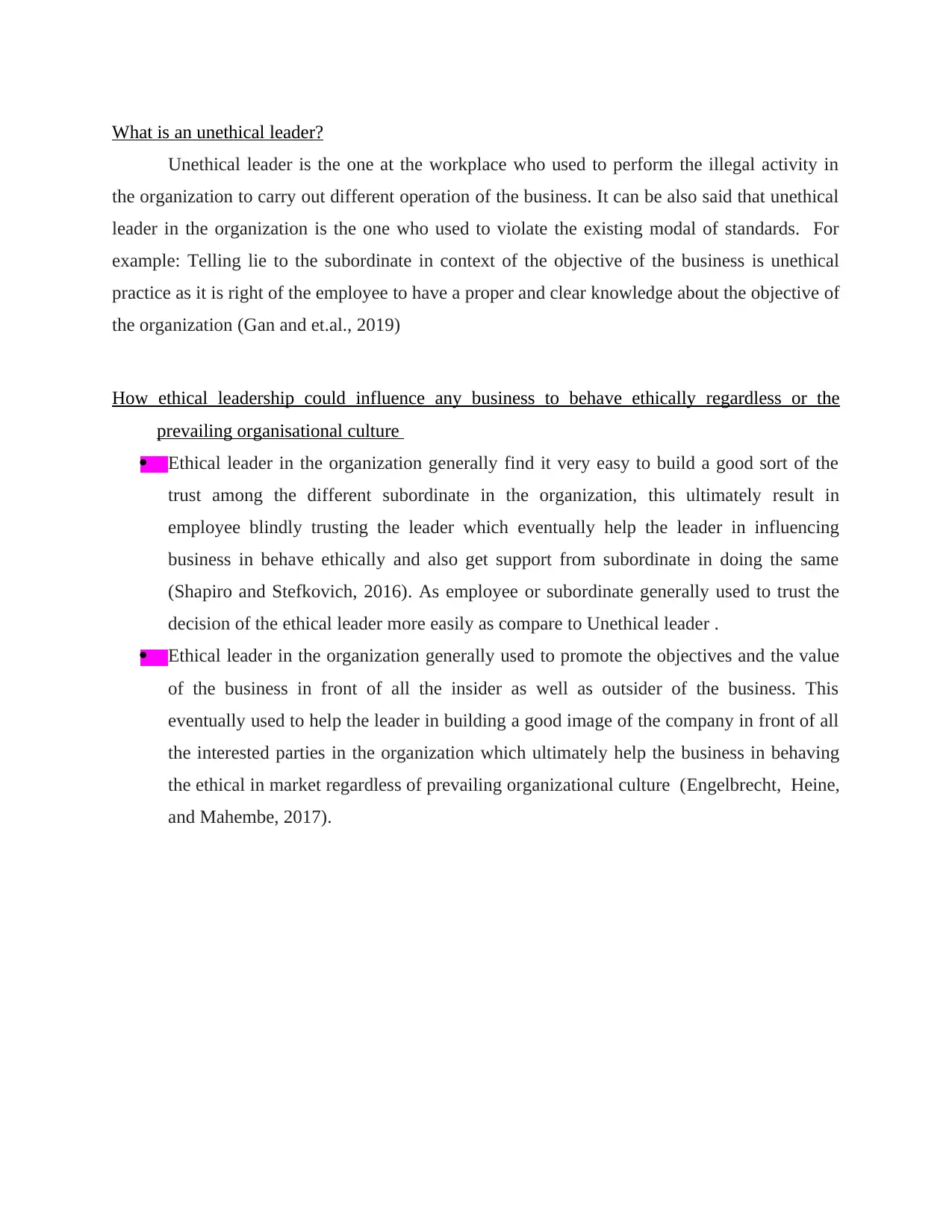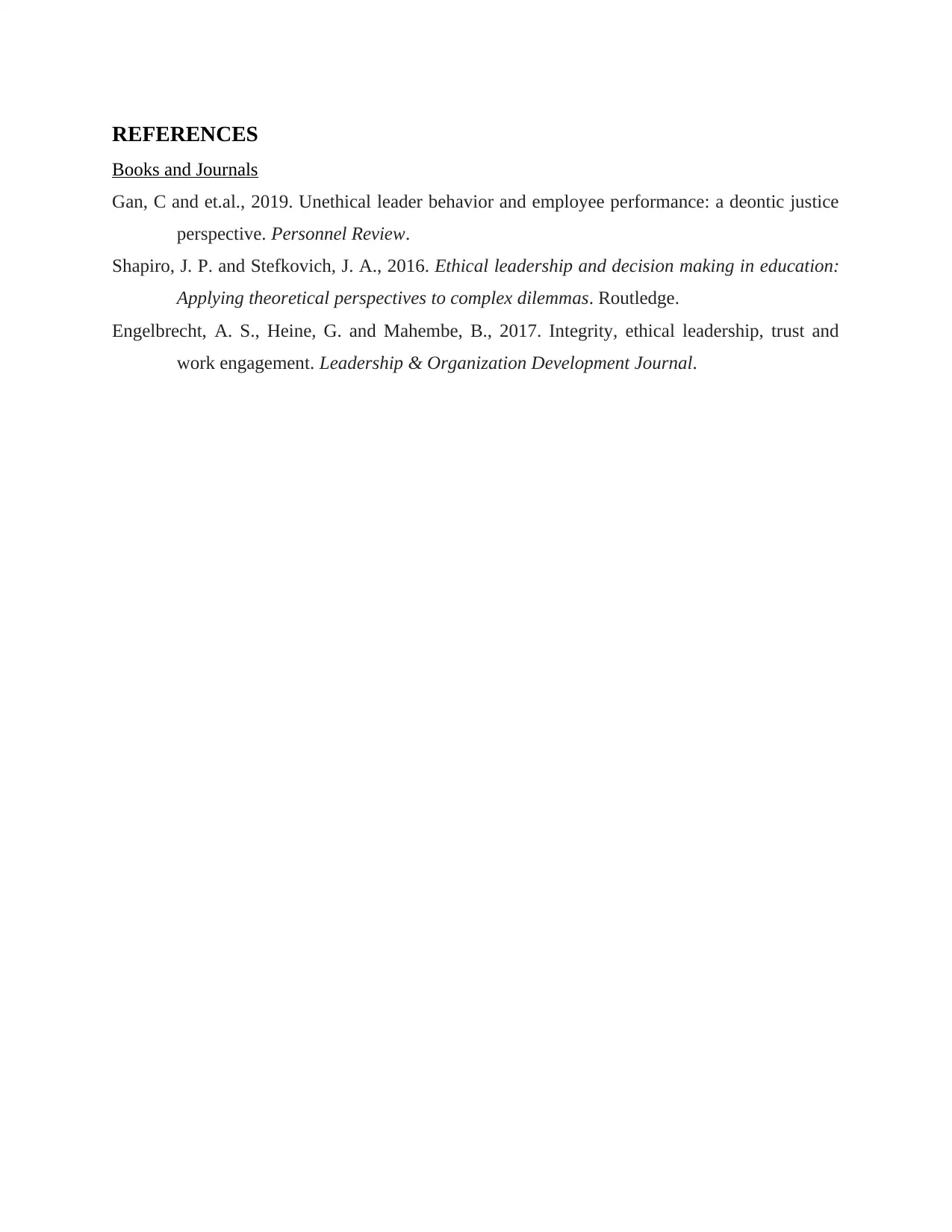Ethical Leadership: Exploring Impacts on Business and Culture
VerifiedAdded on 2023/01/10
|2
|378
|32
Report
AI Summary
This report examines the contrasting impacts of ethical and unethical leadership on business operations and organizational behavior. It explores how ethical leaders foster trust, influence decision-making, and promote ethical conduct within a company, ultimately shaping its culture and performance. Conversely, the report highlights the negative effects of unethical leadership, such as compromising employee trust and potentially damaging the company's reputation. The report also considers the role of ethical leadership in relation to business objectives and values, emphasizing how it can influence business culture and ensure ethical practices. Key references include works by Gan et al. (2019), Shapiro and Stefkovich (2016), and Engelbrecht, Heine, and Mahembe (2017), which provide insights into how ethical leadership can affect business operations.
1 out of 2






![[object Object]](/_next/static/media/star-bottom.7253800d.svg)